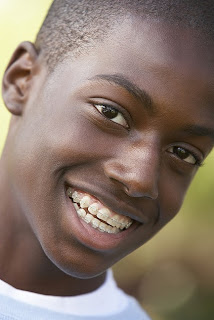October 18th, 2011
 Malocclusion, or what Dr. Nickolaychuk calls “bad bite,” is the improper alignment of teeth and/or jaws. When your teeth and jaws are not properly aligned, it may impact your bite, the ability to properly care for your teeth, your gum tissue health and even your appearance.
Malocclusion, or what Dr. Nickolaychuk calls “bad bite,” is the improper alignment of teeth and/or jaws. When your teeth and jaws are not properly aligned, it may impact your bite, the ability to properly care for your teeth, your gum tissue health and even your appearance.
Most people experience some degree of malocclusion, but it generally is not severe enough to require corrective measures. If your malocclusion is serious enough, however, orthodontic treatment may be necessary to correct the issue.
Dr. Nickolaychuk will tell you that untreated malocclusion can lead undesirable mouth problems, including tooth decay, gum disease, or chipped and cracked teeth. The most common solution for malocclusion, of course, is orthodontic treatment. The actual course of treatment, including the length of time you will require braces, will be determined by severity of your malocclusion. The goal of your treatment is to move your teeth into the proper position and correct any misalignment in the jaw.
At Kildonan Orthodontics, we use the most advanced technology in the field in order to ensure that you receive the best possible results. If you have any questions about malocclusion, please give us a call and we’ll try to answer any questions you may have.
October 11th, 2011
 You just got braces at Kildonan Orthodontics and Dr. Nickolaychuk has informed you that during your orthodontic treatment you will want to avoid eating anything sticky, hard, crunchy, or chewy. What does this leave for you to eat? Lettuce? Nothing?
You just got braces at Kildonan Orthodontics and Dr. Nickolaychuk has informed you that during your orthodontic treatment you will want to avoid eating anything sticky, hard, crunchy, or chewy. What does this leave for you to eat? Lettuce? Nothing?
Luckily, our friends at the American Association of Orthodontists, or AAO, created a variety of “braces-friendly” recipes that will allow you to enjoy your favorite treats without interfering with your orthodontic care!
Recipes include main dishes, side dishes and even yummy desserts! After all, a healthy diet provides essential nutrients and helps the patient achieve the best possible results from orthodontic treatment.
If you have any questions about the recipes listed or about the foods you should be avoiding during your orthodontic treatment, please give us a call or ask us on Facebook!
Enjoy!
October 4th, 2011

Happy October! For those who don't know, it's National Orthodontic Health Month. This month-long event is organized by our pals at the American Association of Orthodontists, or AAO.
Dr. Brent Nickolaychuk and our team realize that this is a great opportunity for us to raise awareness about the importance of oral hygiene. National Orthodontic Health Month also aims to recognize the dedicated work of orthodontists like Dr. Nickolaychuk and other dental professionals.
The AAO recommends patients avoid the following Halloween treats, or recipes with these ingredients:
• Caramel
• Nuts
• Popcorn (including un-popped kernels)
• Taffy
• Jelly beans
• Hard pretzels
• Licorice
• Bubblegum
• Taco chips
• Ice
If you have any questions, please feel free to give us a call, ask us on Facebook or ask us at Kildonan Orthodontics during your visit this month!
September 27th, 2011

If you recently completed treatment at Kildonan Orthodontics, we’d like to congratulate you! Now that your braces have been removed, Dr. Brent Nickolaychuk will provide—or has provided you—with retainers. After braces are removed, teeth can shift out of position if they are not stabilized. Retainers, however, always provide that stabilization. They are designed to hold teeth in their corrected, ideal positions until the bones and gums adapt to the treatment changes. Wearing retainers exactly as instructed by Dr. Nickolaychuk is the best insurance that the treatment improvements last for a lifetime.
To learn more about the advantages of wearing retainers after your orthodontic treatment with Dr. Nickolaychuk, please read this helpful article about retainers from KidsHealth or give us a call!
 Malocclusion, or what Dr. Nickolaychuk calls “bad bite,” is the improper alignment of teeth and/or jaws. When your teeth and jaws are not properly aligned, it may impact your bite, the ability to properly care for your teeth, your gum tissue health and even your appearance.
Malocclusion, or what Dr. Nickolaychuk calls “bad bite,” is the improper alignment of teeth and/or jaws. When your teeth and jaws are not properly aligned, it may impact your bite, the ability to properly care for your teeth, your gum tissue health and even your appearance.


